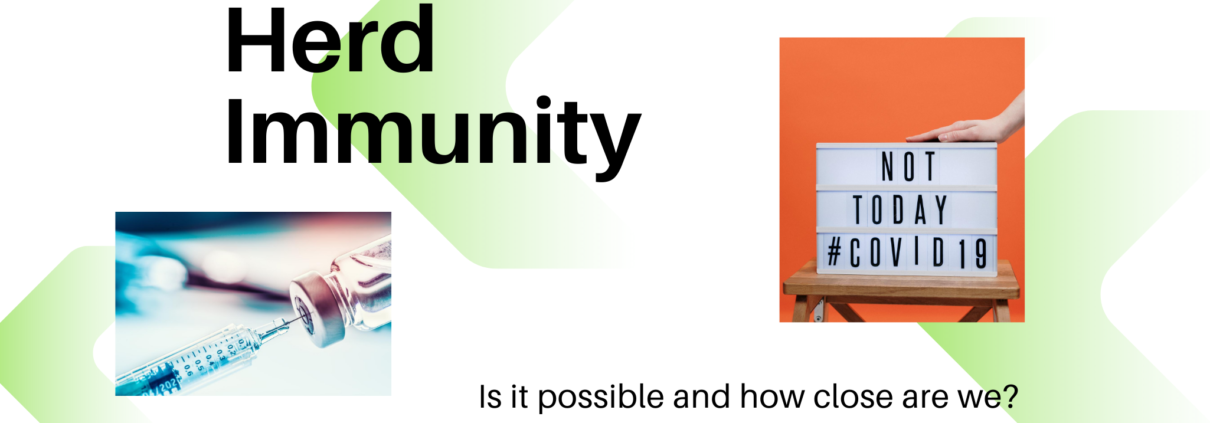Herd Immunity: Is It Possible And How Close Are We?
It’s been a confusing back and forth since the pandemic began. Is herd immunity achievable and if so, is it an ethical option? What does attaining herd immunity mean and what are its implications? Can we reach herd immunity without a vaccine? Can people be reinfected? How long do antibodies last?
While there is still a lot we don’t know about the virus and its effects, here’s what we do know:
- COVID-19 antibodies don’t seem to last very long and no one is sure that they offer protection from being reinfected. The CDC released updated information saying that “people can continue to test positive for up to 3 months after diagnosis and not be infectious to others. Contrary to media reporting today, this science does not imply a person is immune to reinfection with SARS-CoV-2, the virus that causes COVID-19, in the 3 months following infection.” Antibody levels also seem to vary greatly, but on average are much lower than they would need to be to achieve herd immunity even if they did guarantee immunity while they last. Experts estimate that the global antibody rate is about 10%–much too low. The highest rate of antibodies present is in New York City at an average of 20% but most places are significantly lower even if nearby, like Connecticut at an average of 5%. Even if new research that indicates the herd immunity threshold may only require about 50% of the population to be immunized is true, down from most estimates of 70%, we are no where near reaching herd immunity naturally.
- Natural herd immunity comes at too high of a cost and may not be possible considering it’s unknown how soon reinfection is possible after recovering from the virus. Natural herd immunity would mean a massive death toll. While the current estimated fatality rate of COVID-19 may be as low as .65% that would still be 2,133,300 American deaths. And Dr. Fauci estimates that it may be much higher given the amount of pre-existing conditions in the US, not to mention the additional deaths that would occur, COVID related and otherwise, when our hospital system is completely overwhelmed.
- A vaccine will be necessary to reach herd immunity but it will take more than just a viable vaccine to stop COVID-19. While vaccine development seems to be on track for a 2021 deadline, the efficacy rate may initially be lower than the optimal 70%. If it takes 60-70% of the population being immunized to reach herd immunity, and we were lucky enough to have a vaccine with that ideal efficacy rate of 70%, it would still require almost everyone to be vaccinated. That means that if ⅓ of the population decides not to get the vaccine, which is possible given the anti-science and anti-authority sentiment prevalent in the country right now, we would still be vulnerable to COVID-19 and the pandemic would continue.
A new addition to the coronavirus task force, Dr. Scott Atlas, has been pushing to allow for a natural herd immunity, adding to the confusion and misinformation being spread. Obviously, a natural herd immunity, again, if possible, would come at the cost of a significant amount of American lives and is a last resort. Our best bet is to enforce the measures we already know work, comprehensive mask wearing and social distancing, in conjunction with limiting groups of people in indoor spaces, while we eventually administer a viable and effective vaccine, hopefully sooner than later.
Yours in Strength,
The Take Back Control Team




Leave a Reply
Want to join the discussion?Feel free to contribute!